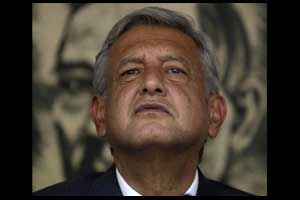- Home
- Medical news & Guidelines
- Anesthesiology
- Cardiology and CTVS
- Critical Care
- Dentistry
- Dermatology
- Diabetes and Endocrinology
- ENT
- Gastroenterology
- Medicine
- Nephrology
- Neurology
- Obstretics-Gynaecology
- Oncology
- Ophthalmology
- Orthopaedics
- Pediatrics-Neonatology
- Psychiatry
- Pulmonology
- Radiology
- Surgery
- Urology
- Laboratory Medicine
- Diet
- Nursing
- Paramedical
- Physiotherapy
- Health news
- Fact Check
- Bone Health Fact Check
- Brain Health Fact Check
- Cancer Related Fact Check
- Child Care Fact Check
- Dental and oral health fact check
- Diabetes and metabolic health fact check
- Diet and Nutrition Fact Check
- Eye and ENT Care Fact Check
- Fitness fact check
- Gut health fact check
- Heart health fact check
- Kidney health fact check
- Medical education fact check
- Men's health fact check
- Respiratory fact check
- Skin and hair care fact check
- Vaccine and Immunization fact check
- Women's health fact check
- AYUSH
- State News
- Andaman and Nicobar Islands
- Andhra Pradesh
- Arunachal Pradesh
- Assam
- Bihar
- Chandigarh
- Chattisgarh
- Dadra and Nagar Haveli
- Daman and Diu
- Delhi
- Goa
- Gujarat
- Haryana
- Himachal Pradesh
- Jammu & Kashmir
- Jharkhand
- Karnataka
- Kerala
- Ladakh
- Lakshadweep
- Madhya Pradesh
- Maharashtra
- Manipur
- Meghalaya
- Mizoram
- Nagaland
- Odisha
- Puducherry
- Punjab
- Rajasthan
- Sikkim
- Tamil Nadu
- Telangana
- Tripura
- Uttar Pradesh
- Uttrakhand
- West Bengal
- Medical Education
- Industry
Mexican president seeks to revamp health care for poor

MEXICO CITY: Mexican President Andres Manuel Lopez Obrador announced a $5.7-billion, two-year plan Friday to revamp the country's health care system for the poor. He also said the country should consider a program for euthanasia, or voluntarily assisted dying, which is currently not allowed.
"Why don't we implement some program for dignified death? Why not, assisted?" said Lopez Obrador. "These are very important questions we have to resolve among all of us."
The plan aims to improve hospitalization services and ensure supplies of medications for poor Mexicans not covered by one of the two main federal health insurance programs.
Mexico already has one system for private-sector workers whose employers contribute to health insurance payments, and another system for government employees.
Farmers, the self-employed and street vendors fall outside those plans.
"More than half the population has no health insurance," Lopez Obrador said. "So this program is for them. It is for everybody, but the emphasis is to care for those with no insurance, the poorest people."
At present they are treated at a patchwork of state and local clinics, which often don't have the level of care or medications they need.
But under the new plan, they would be eligible for emergency treatment at hospitals in the two other, better-funded systems. Lopez Obrador pledged to improve funding and staffing at the federal facilities.
Lopez Obrador also said the federal government would take responsibility for treating everyone in eight states in the impoverished southeast, the first to join the plan. Mexico's other 24 states would be added eight at a time, so all would be covered within two years.
Lopez Obrador put special emphasis on providing medications; while Mexicans can often get the diagnosis, the medicines they need often simply aren't available at hospitals and clinics.
Patients are often forced to buy medications at private pharmacies with their own funds, and there have been many instances of fraud and corruption in the bidding to supply medications the government does buy.
Lopez Obrador said he would invite the United Nations to oversee purchasing programs to ensure transparency.
Medical Dialogues Bureau consists of a team of passionate medical/scientific writers, led by doctors and healthcare researchers. Our team efforts to bring you updated and timely news about the important happenings of the medical and healthcare sector. Our editorial team can be reached at editorial@medicaldialogues.in.
Next Story


